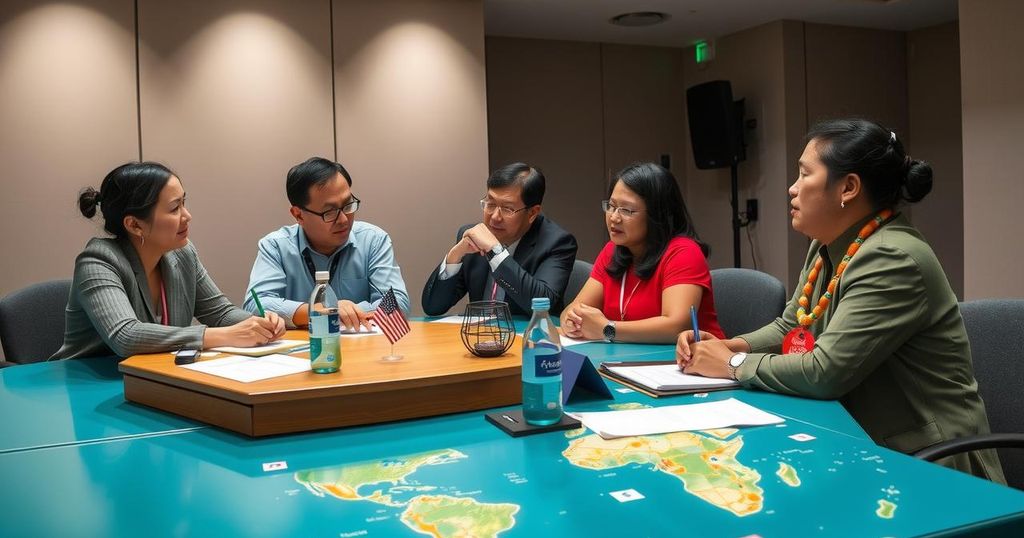The “Building Climate Change Resilience for Small Island States” workshop took place on August 15-16, 2024, in Tuvalu, organized by Taiwan, the U.S., Australia, Japan, and Tuvalu. It gathered over 60 participants from these countries and others, focusing on policy sharing and multilateral cooperation to enhance climate resilience. The event also included visits to relevant adaptation projects.
From August 15 to 16, 2024, Tuvalu hosted the “Building Climate Change Resilience for Small Island States” workshop, organized collaboratively by Taiwan, the United States, Australia, Japan, and Tuvalu. This workshop marked the first instance of a Global Cooperation and Training Framework (GCTF) event in Tuvalu, drawing over 60 participants from the organizing countries, as well as from Palau, the Marshall Islands, and Sweden. Key attendees included Brenton Garlick from the Australian High Commission and Michael Glees from the U.S. Agency for International Development, alongside Tuvalu’s Maina Talia, Minister of Home Affairs, Climate Change, and Environment.
The workshop focused on sharing policy measures and exploring strategies to enhance multilateral cooperation against climate challenges. Participants engaged in field visits to crucial sites relevant to climate adaptation, such as those involving land reclamation and floating solar energy systems, which form part of the Tuvalu Coastal Adaptation Project. The GCTF, launched in 2015 by Taiwan and the United States, has since evolved into a significant platform for addressing global challenges, welcoming Japan, Australia, Canada, and participating nations in recent events held outside the founding countries.
The Global Cooperation and Training Framework (GCTF) was initiated to facilitate international dialogue on pressing global issues, particularly those concerning climate change and resilience strategies for vulnerable island nations. With increasing awareness of climate-related challenges facing small island states, this workshop serves as a vital platform to foster collaboration and share innovative solutions among nations. The focus on practical interventions, such as the floating solar energy systems and land reclamation projects in Tuvalu, highlights the importance of adaptive strategies tailored to the unique environmental conditions of these regions.
The GCTF workshop in Tuvalu underscored the critical nature of international cooperation in combating climate change. By bringing together diverse stakeholders, the workshop facilitated meaningful discussions and knowledge exchange aimed at enhancing resilience in small island states. The engagement of multiple nations, including key players like the United States and Australia, demonstrates a united front against climate-related risks, emphasizing the need for collaborative action in addressing global environmental challenges.
Original Source: www.taiwantoday.tw






